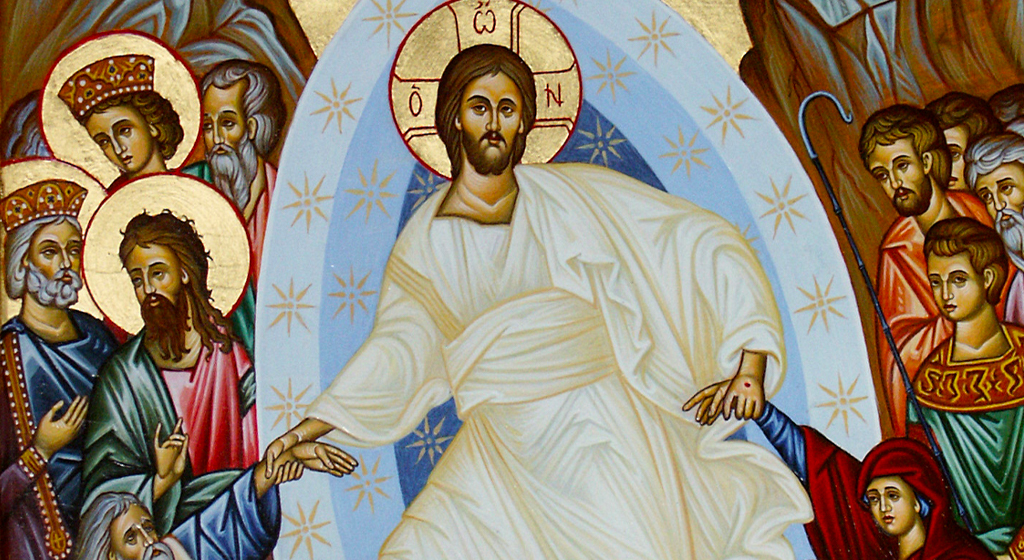Liturgy of the Sunday
Twenty-fourth Sunday of Ordinary Time
Remembrance of Mary, Mother of Jesus, sorrowful at the foot of the cross, and of all those who live the compassion with those who are crucified, alone and condemned.
First Reading
Isaiah 50,5-9
Lord Yahweh has opened my ear and I have not resisted, I have not turned away. I have offered my back to those who struck me, my cheeks to those who plucked my beard; I have not turned my face away from insult and spitting. Lord Yahweh comes to my help, this is why insult has not touched me, this is why I have set my face like flint and know that I shall not be put to shame. He who grants me saving justice is near! Who will bring a case against me? Let us appear in court together! Who has a case against me? Let him approach me! Look, Lord Yahweh is coming to my help! Who dares condemn me? Look at them, all falling apart like moth-eaten clothes!
Second Reading
James 2,14-18
How does it help, my brothers, when someone who has never done a single good act claims to have faith? Will that faith bring salvation? If one of the brothers or one of the sisters is in need of clothes and has not enough food to live on, and one of you says to them, 'I wish you well; keep yourself warm and eat plenty,' without giving them these bare necessities of life, then what good is that? In the same way faith, if good deeds do not go with it, is quite dead. But someone may say: So you have faith and I have good deeds? Show me this faith of yours without deeds, then! It is by my deeds that I will show you my faith.
Reading of the Gospel
Alleluia, alleluia, alleluia
Yesterday I was buried with Christ,
today I rise with you who are risen.
With you I was crucified;
remember me, Lord, in your kingdom.
Alleluia, alleluia, alleluia
Mark 8,27-35
Jesus and his disciples left for the villages round Caesarea Philippi. On the way he put this question to his disciples, 'Who do people say I am?' And they told him, 'John the Baptist, others Elijah, others again, one of the prophets.' 'But you,' he asked them, 'who do you say I am?' Peter spoke up and said to him, 'You are the Christ.' And he gave them strict orders not to tell anyone about him. Then he began to teach them that the Son of man was destined to suffer grievously, and to be rejected by the elders and the chief priests and the scribes, and to be put to death, and after three days to rise again; and he said all this quite openly. Then, taking him aside, Peter tried to rebuke him. But, turning and seeing his disciples, he rebuked Peter and said to him, 'Get behind me, Satan! You are thinking not as God thinks, but as human beings do.' He called the people and his disciples to him and said, 'If anyone wants to be a follower of mine, let him renounce himself and take up his cross and follow me. Anyone who wants to save his life will lose it; but anyone who loses his life for my sake, and for the sake of the gospel, will save it.
Alleluia, alleluia, alleluia
Yesterday I was buried with Christ,
today I rise with you who are risen.
With you I was crucified;
remember me, Lord, in your kingdom.
Alleluia, alleluia, alleluia
Homily
The scene takes place in Upper Galilee, as Jesus walks in the villages in the region of Caesarea Philippi, a city located quite far from Jerusalem, in the midst of an almost totally pagan region. The evangelist wants to suggest that from here begins Jesus' way towards the holy city. From this moment, Jesus "openly" speaks with the disciples, with nothing to hold him back. Making his way, he asks them about the people's opinion concerning him. As one can see, it is Jesus himself who poses, in the middle of the narrative, the "central question" of the whole Gospel, the problem of his identity. Jesus ignores the people's opinion and turns the question directly to the disciples, "But who do you say that I am?" Peter answers him openly and unequivocally, "You are the Messiah!" (Christ is the Greek translation of the Hebrew "Messiah," which literally means "one who is consecrated").
At the words which acknowledged him as Messiah, Jesus begins to speak about his passion (he will speak two other times about it after this). He says that the Son of man must suffer much, be condemned by the elders of the people, by the high priests and scribes; then be killed and rise on the third day. Hearing these words, Peter takes Jesus apart and begins to scold him. He had recognized the incomparable greatness of Jesus to the extent of using the greatest title at his disposal, but he could not accept the "end" that Jesus had presented to them. And it is here that two concepts of the Messiah collide: that of Peter, connected to strength, to power which overcomes, to the establishment of a political kingdom; the other one, that of Jesus, marked by humbling himself to the point of death which will nevertheless end in resurrection.
Jesus, calling the crowd who followed him, says that if anyone wants to become his disciple, he or she must deny himself or herself, take up his or her own cross and follow him. And he adds: whoever thus loses his or her life, really saves it. All this will be clarified on the day of Jesus' resurrection. But already now, also for us, the way of service of the Gospel and of the Lord is the way to fully live according to God.
